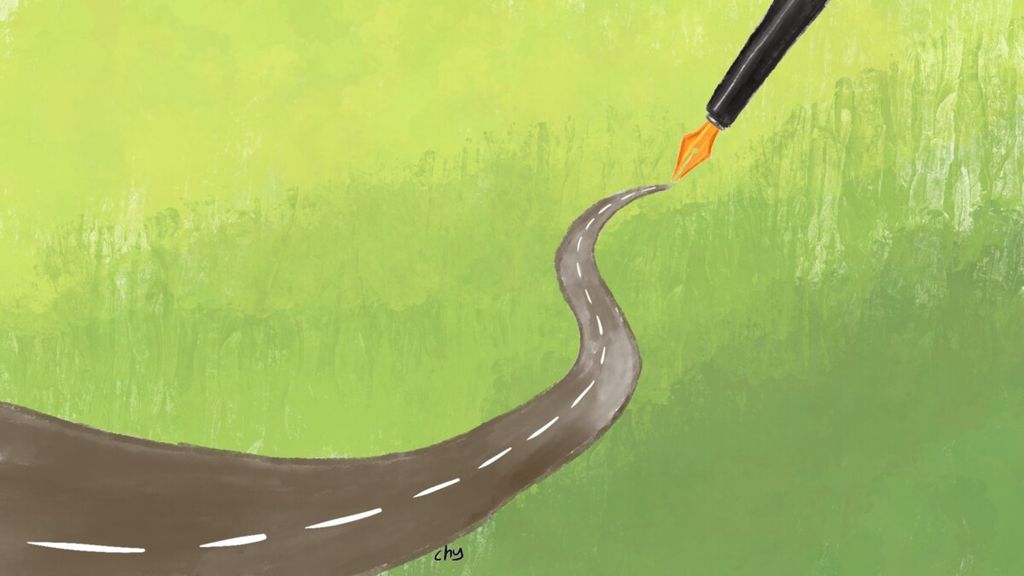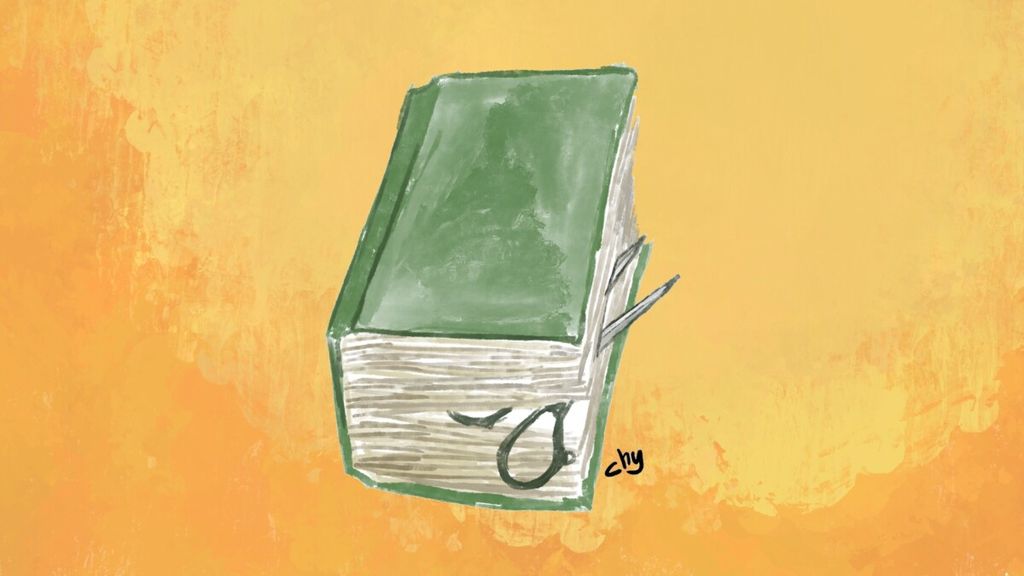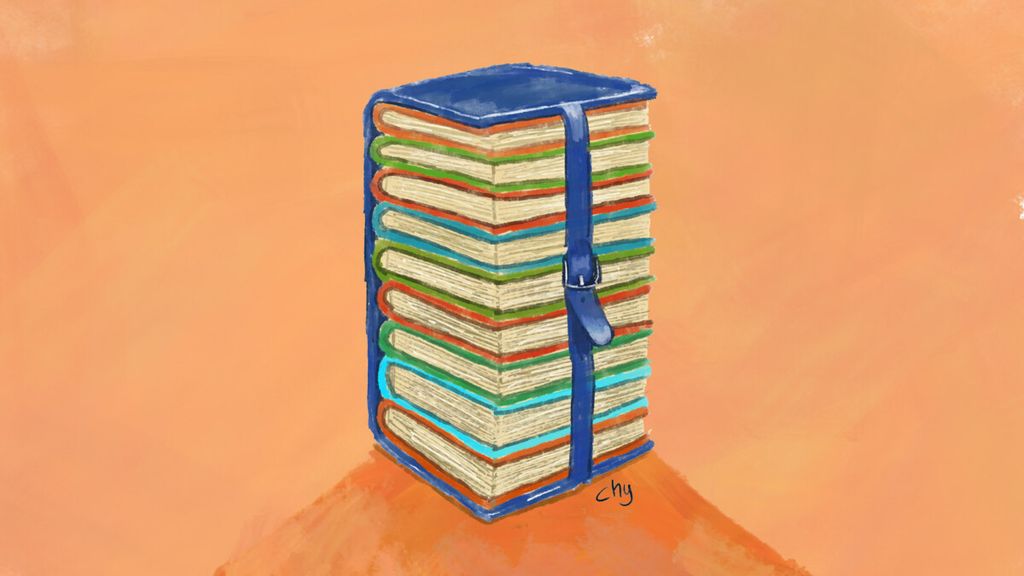A Side Note about Soedjatmoko
It is difficult to find another example where events that happened in just a few years, concentrated within a country, and mostly in a city, had such great historical consequences.”

Heryunanto
This January, Indonesia's foremost thinker, Soedjatmoko, turns 100 years old.
The thought of this figure who was born in 1922 (died: 1990) has penetrated deep into the discourse of global development. In a commentary on Soedjatmoko's book, Development and Freedom (1980), Anne Elizabeth Murase of Sophia University stated that Soedjatmoko's thoughts were an urge (to global actors) to "rethink the development process and for a morale commitment to support the yet unrealized ideal of development in freedom".
Also read:
Freedom was at the heart of Soedjatmoko's concern throughout his life. For this reason, it is necessary to make a note about this figure even though it is a "minor" note. Why is it “minor”? Because the "main note" about Soedjatmoko has been written by Ignas Kleden (in Soedjatmoko's book, Ethic of Liberation, [1984]), in a very comprehensive manner.
Dr Zhivago and the idea of freedom
To begin with, I purposely read Soedjatmoko's writings on Dr Zhivago. The article entitled “Dr Zhivago: Man in the Middle of a Revolution” is interesting in two ways. First, on the quality of the writing. With "coldness", Soedjatmoko saw the novel by Boris Pasternak as a painting about the Russian Revolution (1917), which was transformed into a "big flood" which inevitably inundated the suburbs.
In such a situation, humans are like dust, tossed about without being able to make plans about themselves and their destiny. Soedjatmoko's description makes it easier to understand the essence of Pasternak's ideas.
At the turn of the century, although he certainly never read Soedjatmoko's writings, Tony Brenton, editor of the book Historically Inevitable: Turning Point of the Russian Revolution (2016), "repeated" the painting of the Russian Revolution as the "big flood": "The revolution imposed totalitarian power of the communist teachings that eventually ruled over a third of humanity, fueled Naziism in the 1930s, and hence (also) the Second World War, and created opposition of the West during the forty years of Cold War terror balance.
It is difficult to find another example where events that happened in just a few years, concentrated within a country, and mostly in a city, had such great historical consequences.”

Heryunanto
If we look further, especially after the period called by historian EH Carr in The Bolshevik Revolution (1966 [1953]), as the year of isolation and diplomatic feelers, the "big flood" of the Russian Revolution flows to Europe and Asia. Without "coordinating" with each other, Soedjatmoko, Brenton and Carr revealed the same painting.
Second, for some reason, I was impressed by Soedjatmoko's “conclusion” on Doctor Zhivago. Here, he writes: “Dr Zhivago actually contains a warning to mankind as a whole. He warns that human life could not be satisfied by politics and political philosophy alone. Regardless of what politics and which philosophy. Life is always circumvented from the trap of human logic.
Then, Soedjatmoko continued: “Because political philosophy is based on the notion of life, and it is not life itself. So if, based on a political philosophy we, from above, want to regulate human life in its entirety, or if in our politics, we claim to have absolute truth, we have actually carried out an arrogant attitude towards life itself. Dr. Zhivago's message is the opposite, which can be referred to by a term that Pasternak himself did not use: humility of the mind.”
This is interesting. Especially because Soedjatmoko continued his conclusion by quoting a phrase in Doctor Zhivago's novel script: coddling man, exalting him above the rest of nature and worshiping him. This phrase reminds me of my paper on Mohammad Natsir, Refusing to Be Heidegger: Political Thought and Democracy of Mohammad Natsir (2008) in which I described Natsir's “suspicious” attitude toward worshiping great people.
These solidarity makers, in Feith's definition, are “leaders who are skilled as liaisons between various groups with different levels of modernity and political effectiveness, as mass gatherers, and as creator of integrative symbols".
Following Herbert Feith's work, The Decline of Constitutional Democracy in Indonesia (1962), we know that since 1957, Indonesian politics has been marked by the strengthening of solidarity makers over administrators. These solidarity makers, in Feith's definition, are “leaders who are skilled as liaisons between various groups with different levels of modernity and political effectiveness, as mass gatherers, and as creator of integrative symbols”.
In contrast to the administrators who Feith called “leaders with the governmental, technical, legal and foreign language skills needed to run a very special modern apparatus of a modern state, the solidarity makers got rid of the patience towards constitutional democracy procedure. Political instability and ideological ‘splits’ during the period of constitutional democracy implemented since late 1945 have given rise to the impression that democracy is not the best path for the Indonesian political system”.

Heryunanto
It is in this situation that the "big man" must appear to integrate all political and ideological forces for the sake of national "safety". The "big man" was Soekarno, who used the phrase John Legge in Sukarno: A Political Biography (1972), representing a new order of power.
And in the new order, Soekarno emerged as the fulcrum (axis) of the process of integrating power which previously, under the constitutional democratic system, was perceived as being scattered. And we know that the "peak" of the action to reorganize the new political system that has taken place since the birth of the "Presidential Conception" in 1957 was the Presidential Decree on 5 July 1959: the dissolution of the Konstituante (parliament) and the return of the Constitution to its original format which was confirmed on 18 August 1945. .
In this form of constitution, the president holds great power. And in a situation where the power of political parties has experienced a drastic decline, president Soekarno automatically emerged as an unmatched force, both according to the provisions of the constitution and real politics.
It was during this period that Soedjatmoko wrote a review of the novel Doctor Zhivago. I think that Soedjatmoko's attempt to quote the phrase “coddling man, exalting him above the rest of nature and worshiping him” from Doctor Zhivago, has a dual purpose, namely, in addition to describing the real situation that occurred in Russia after the 1917 Revolution, it also expresses concern about what was happening in Indonesia when he wrote a review of the novel.
Development and the idea of freedom
Decades later, in 1979, Soedjatmoko still maintained the same concern. At a lecture in Tokyo, which was published in the form of a book entitled Development and Freedom, Soedjatmoko expressed this concern by saying, "Human freedom is certainly the first victim of such a future." Here, his perspective on Doctor Zhivago continues.
However, Soedjatmoko's concern is now focused on the effects of development which structurally "require" a concentration of power. This relates to a World Bank report made in 1978 which stated that the absolute poverty eradication program would not be achieved in 2000 despite the United Nations' declaration.
If these projections are correct, and given the widespread poverty, illiteracy and unemployment of the world's population, are there prospects for meaningful human freedom?
The World Bank's belief prompted Soedjatmoko to say, ”The report also shows that this gloomy prospect persists, regardless of the growth pattern used, that is, regardless of any type of growth model or models of equity for development. If these projections are correct, and given the widespread poverty, illiteracy and unemployment of the world's population, are there prospects for meaningful human freedom?”
This, in essence, reveals the concern about authoritarian power which is structurally “forced” to emerge for the sake of eradicating poverty. “The whole scenario for living in such an overcrowded, hungry and competitive world,” writes Soedjatmoko, “shows increasing pressures toward authoritarianism and greater oppression, sharper competition and greater repression, conflicts over scarce resources and increasing violence, both between countries and within countries themselves.”

Heryunanto
Soedjatmoko then closed the paragraph above by saying that human freedom is the first victim in such a life situation.
Here we see that the source of threats to human freedom and autonomy for Soedjatmoko is not singular. In the description about the novel Doctor Zhivago, the threat comes from the expression of revolutionary politics. And in the "politics of development", the threat comes or originates from the structural imperative to form a strong and centralized power which is assumed to be necessary to eradicate poverty.
Development theory
This is an "eternal" dilemma of mankind in defending freedom. This is because, especially in developing countries, where rulers have to submit to a short-term cycle of power, the development idea proposed by Neo-Keynesian with its big push method is much more "tempting".
As stated by Dorodjatun Kuntjoro-Jakti in his dissertation, The Political-Economy of Development: The Case of Indonesia Under the New Order Government, 1966-1978 (1980), in societies that are economically, socially and educationally backward, Neo-Keynesians argue, "only with a frontal attack of massive capital formation can a decisive breakthrough occur, which gives rise to the momentum of the 'take-off' phase and leads to an economy that is growing sustainably on its own power.”
This path gives rise to certain political-economic effects. First, as we see everywhere in developing countries, a flood of capital has inundated even remote areas by marginalizing the poor. Second, following Karl Wittfogel in Oriental Despotism (1980 [1950]), the organization of such large undertakings structurally encourages the concentration of power which, therefore, threatens freedom. A human dilemma, as stated above, is “eternal.”
However, Soedjatmoko tried to solve it by advocating democratic theory of development, namely a “theory about the types of development and its pathways that support, and not destroy, freedom and human dignity”.
In the operational context, this democratic theory of development reminds us of Karl Polanyi's critique of the practice of “market economy” which tends to produce fictious commodities. In his work, The Great Transformation (1942), Polanyi states that the destructive effect of a market economy occurs because it includes "land" and "humans" as commodities to be traded. This is the origin, said Polanyi, for the birth of material injustice, because both “land” and “humans” are God's creations. This inequality, from Soedjatmoko's perspective, gave birth to the effect of undemocratic development.
Of course, the application of democratic theory of development seems impossible. However, since the 1980s, even in Indonesia, the idea of alternative development based on non-governmental organizations has spread.
As mentioned by Thomas Widlock in An Anthropology and the Economy of Sharing (2016), the phrase leads to a self-image of the sharing society, precisely within the capitalist society itself.
And at the global level of thought, as attacks on Europe-biased development strategy have intensified, the idea of people-centered development has been introduced, as stated by Ismid Hadad at a discussion on Soedjatmoko at LP3ES, on 10 January 2022. Later, in addition to other ideas that are growing, we find the phrase “it is a shareholders' world”. As mentioned by Thomas Widlock in An Anthropology and the Economy of Sharing (2016), the phrase leads to a self-image of the sharing society, precisely within the capitalist society itself.
Here, we see that Soedjatmoko's democratic theory of development has not only resonated, but traced back to, at least, Karl Polanyi, and in the future, the economic anthropologist Thomas Widlock. In the one hundred years of his birth, Soedjatmoko, this prominent Indonesian thinker, has given birth to a point of thought from a long chain of global development discourses on human freedom.
/https%3A%2F%2Fkompas.id%2Fwp-content%2Fuploads%2F2018%2F01%2Fkompas_tark_24548633_118_0.jpeg)
Fachry Ali
Fachry Ali, Cofounder of the Institute for the Study and Development of Business Ethics (LSPEU Indonesia)
(This article was translated by Kurniawan Siswo).